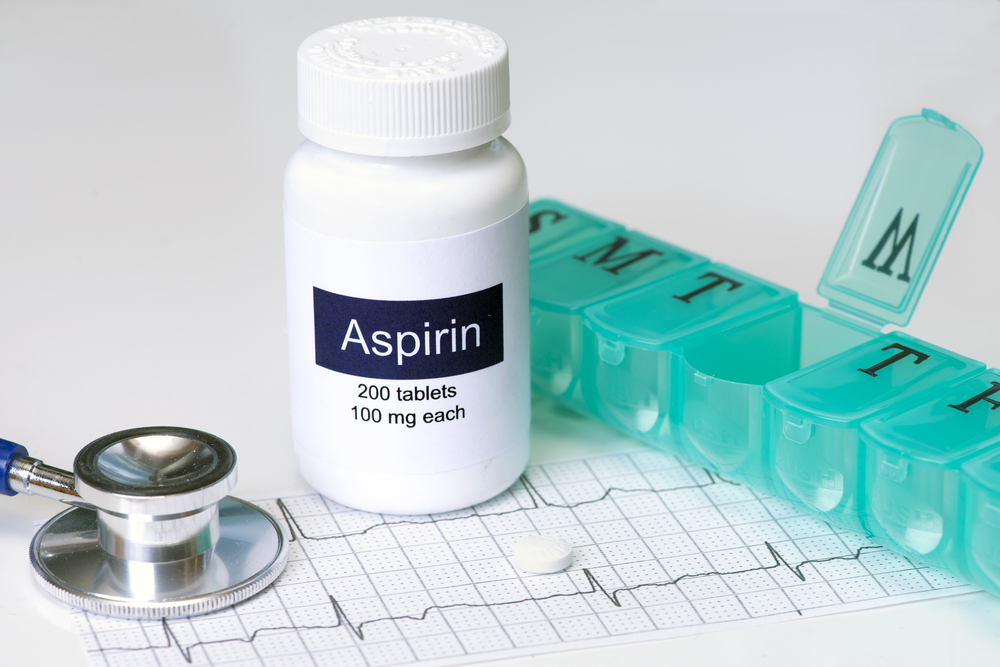Results from a recent study published in the American Journal of Epidemiology showed that nonsteroidal anti-inflammatory drugs (NSAIDs) such as ibuprofen and aspirin may delay or even prevent benign prostatic hyperplasia.
“This study suggests that men’s urinary health may be improved by taking NSAIDs,” said Michael Lieber, M.D., Mayo Clinic urologist and study investigator. He and colleagues from the Mayo Clinic discovered that the risk of developing an benign prostatic hyperplasia was 50% lower in men that used NSAID in comparison to non-users. The researchers also found that risk of developing moderate to severe urinary symptoms was 35% lower.
Jenny St. Sauver, Ph.D., Mayo Clinic epidemiologist and lead study investigator, further commented, “The association between intake of NSAIDs and the reduction of benign prostatic hyperplasia is strengthened by the consistency and magnitude of our findings. We would not recommend that every man go out and take aspirin, but if they are already taking it regularly for other reasons, our findings suggest another benefit as well.”
Benign prostatic hyperplasia, also called benign enlargement of the prostate is an increase in prostate size. Globally, benign prostatic hyperplasia affects about 210 million males, usually as they get older. For a symptom-free man of 46 years of age, the risk of developing BPH over the next 30 years is 45%. Incidence rates increase from 3 cases per 1000 man-years at the ages of 45–49 years, to 38 cases per 1,000 man-years by the ages of 75–79 years. While the prevalence rate is 2.7% for men aged 45–49 these increase to 24% by the age of 80.
“The typical scenario with benign prostatic hyperplasia is that men start getting up three to five times a night to urinate, and their wives ultimately force them to go see a urologist,” said Dr. Lieber. “Men also might come in if they have problems with daytime urinary frequency. All this adversely affects men’s quality of life.”
Dr. Lieber mentioned that middle-aged men often take NSAID’s as a prevention of heart disease or to reduce symptoms of arthritis. “Our study suggests that one potential unintended consequence of so many people in our society taking NSAIDs could be an improvement in urinary health for men,” he said. “So, if a person’s primary care doctor recommends NSAIDs for some other reason, prostate health might be an additional benefit. However, I would not recommend taking daily NSAIDs based on this study alone, due to the potential side effects such as stomach ulcers.”
Evidence from previous investigations showing that NSAIDs are associated with a decrease in the risk prostate cancer motivated Mayo Clinic researchers’ to test the impact of these drugs on benign prostate hyperplasia. A total of 2,447 Caucasian men randomly selected in Olmsted County took part in the study analysis. All study participants filled questionnaires two times per year between 1990 and 2002. At study enrolment, one-third of these men were taking NSAIDs every day.
Researchers observed that NSAID dosage did not affect urinary symptoms’ reduction, with only a small proportion of men taking aspirin in a low dose. However, those men were less at risk of developing urinary symptoms. Results also showed that the type of NSAID was irrelevant, and even though 80% of men were taking aspirin, those who were taking other NSAIDs also showed a reduction in the risk for benign prostatic hyperplasia and its urinary symptoms.
According to Dr. Lieber, NSAIDs effects on benign prostatic hyperplasia and its urinary symptoms remains unclear. Some possible explanations involve the fact the 1) the drugs reduce prostate growth directly or by increasing cell death in the prostate, or 2) they are able to reduce genitourinary tract inflammation.
The team suggests their findings need further confirmation and future studies should address the best drug dosage associated with a reduction in the risk of benign prostatic hyperplasia development.

